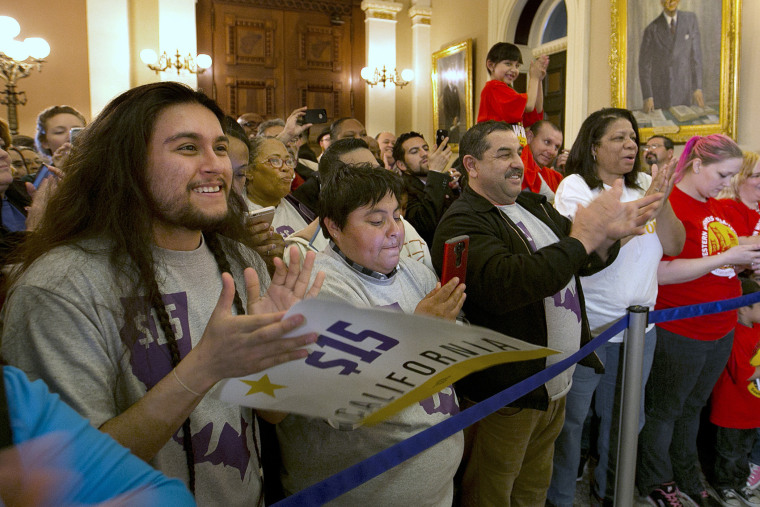Gov. Jerry Brown signed a bill into law Monday giving California the nation's highest statewide minimum wage of $15 an hour by 2022.
That and a similar effort in New York mark the most ambitious moves yet to close the national divide between rich and poor. Experts say other states may follow, given Congress' reluctance to act despite entreaties from President Barack Obama.
"This is about economic justice. It's about people. It's about creating a little, tiny amount of balance in a system that every day becomes more unbalanced," Brown said before signing the bill at the Ronald Reagan State Building in downtown Los Angeles.
Republicans and business groups warn that the move could cost thousands of jobs, while a legislative analysis puts the ultimate cost to taxpayers at $3.6 billion a year in higher pay for government employees.
A $15 base wage will have "devastating impacts on small businesses in California," Tom Scott, executive director of the state branch of the National Federation of Independent Business, said in a statement. "Ignoring the voices and concerns of the vast majority of job creators in this state is deeply concerning and illustrates why many feel Sacramento is broken."
Democrats who control the Legislature approved the compromise legislation Thursday, days after the agreement was announced. The measure passed with no Republican support.
The bill will bump the state's $10 hourly minimum by 50 cents next year and to $11 in 2018.
Hourly $1 raises will then come every January until 2022, unless the governor imposes a delay during an economic recession. Businesses with 25 or fewer employees have an extra year to comply.
Wages will rise with inflation each year thereafter.
The Democratic governor negotiated the deal with labor unions to head off competing labor-backed ballot initiatives that would have imposed swifter increases with fewer safeguards.
About 2.2 million Californians now earn the minimum wage, but University of California, Irvine, economics professor David Neumark estimated the boost could cost 5 to 10 percent of low-skilled workers their jobs.
Brown has said California, with the world's eighth largest economy, can absorb the raises without the problems predicted by opponents.
